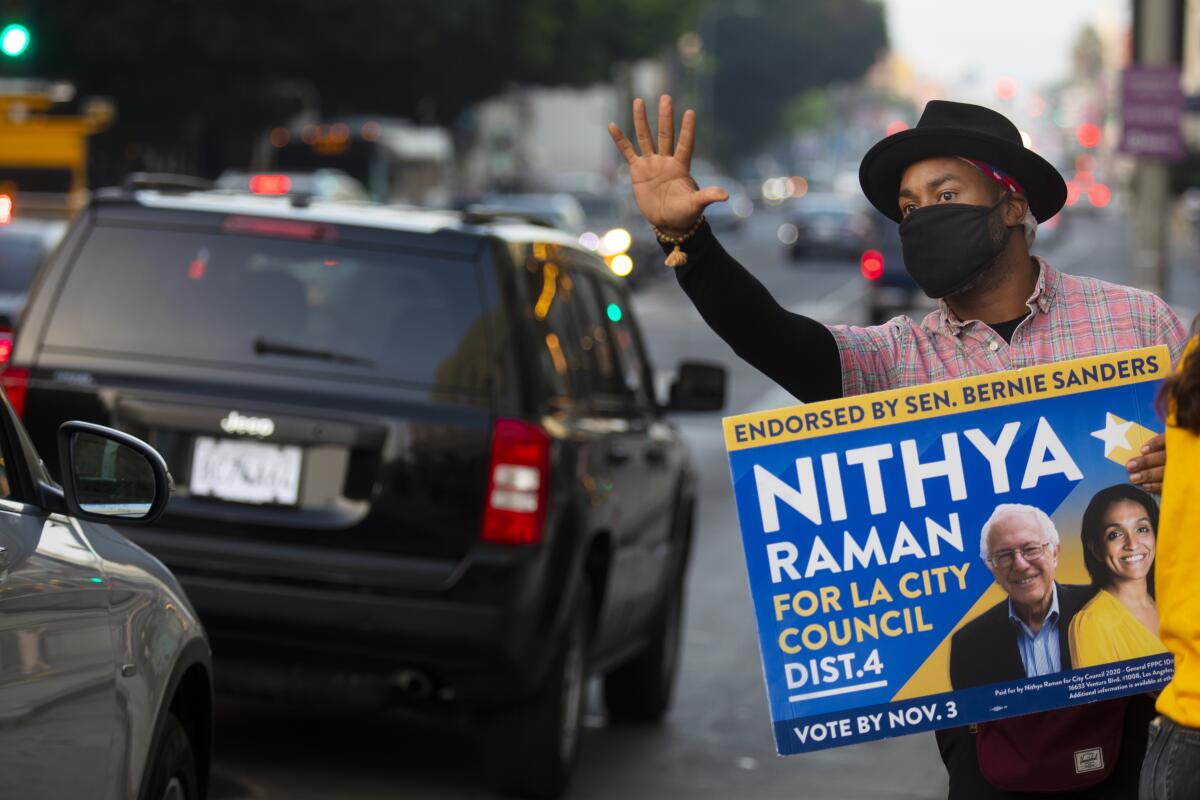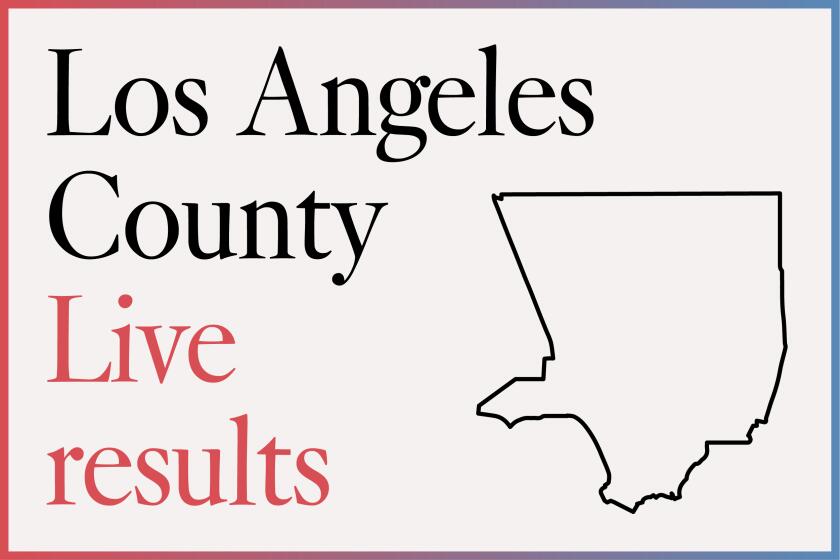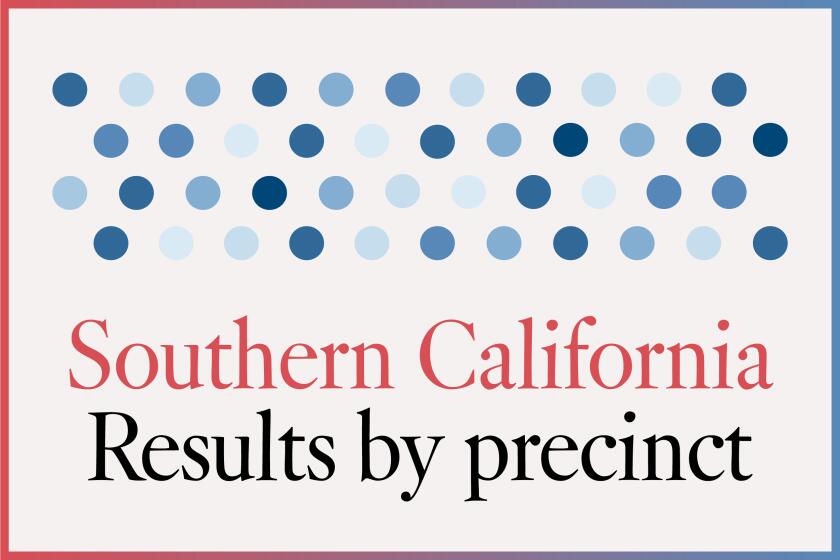Editorial: L.A. elections broke records and upended the status quo

With so much attention focused on the presidential election, it might be easy to overlook the two Los Angeles City Council races that were on the ballot this week. But don’t. This year’s local election broke records and upended the status quo. In short, it was a pretty good year for democracy.
Usually the days after an L.A. election are full of handwringing and lamentations about the tiny number of Angelenos who cared enough to vote. It got so bad that in 2014, the Los Angeles Ethics Commission recommended staging an election day lottery with a $1,000 jackpot to persuade people to vote in future council races.
There was no need to dangle cash prizes this time. Turnout skyrocketed.
One obvious factor was the huge interest in the presidential election. More important was the effect of the ballot measures voters passed in 2015 to move L.A.’s municipal and school board elections from odd-numbered to even-numbered years to coincide with presidential and gubernatorial elections. This is the first year L.A. voters have seen a consolidated election, and participation was even better than election reformers had predicted.
Turnout in the Council District 4 runoff more than quadrupled compared to 2015, with more than 110,000 votes counted so far. In Council District 10, more than 70,000 ballots were cast in the runoff between Los Angeles County Supervisor Mark Ridley-Thomas and attorney Grace Yoo; that’s a fivefold increase over the 2015 election. Ridley-Thomas won the seat vacated by Councilman Herb Wesson.
Consolidated elections also tend to bring out a more diverse electorate, including a greater number of young voters, renters and Latinos — and this election appears to fit that pattern. That’s good. Democracy is not served when so few Angelenos vote.
Tuesday’s election is significant for another reason: It could be the first time in 17 years that a City Council incumbent loses reelection. As of Thursday, urban planner and activist Nithya Raman was in a strong position to unseat Councilman David Ryu. Raman was leading with 52% of the vote, although votes will continue to be counted for at least two more weeks.
Far too often, reelection is a cakewalk. L.A.’s elected leaders have rarely faced qualified, well-funded challengers. The big donors — labor and business groups — line up early behind incumbents, and few challengers feel they can compete, so they skip the race or wait until there’s an open seat. As a result, L.A. has many non-competitive races, which means less debate over the future of the city and lower voter participation.
It’s far too soon to declare an end to non-competitive races. But this year has shown that the change in election dates can help level the playing field. Raman said that she chose to run this year in part because of that change. It’s refreshing to see this new wave of voters challenge the power of incumbency — even when we like the incumbent. (The Times endorsed Ryu for reelection, in part because of his efforts to reduce the corrupting influence of campaign donations.)
The question now is how this shift in elections and turnout will influence city policy. Raman ran and won with strong backing from progressive activists, and she’s laid out ambitious and expensive proposals to develop a non-law enforcement alternative to the Los Angeles Police Department, provide public broadband and create a network of homeless access centers across the city. Ridley-Thomas has said his top priority is addressing the city’s homelessness crisis by providing more affordable housing and more extensive prevention and intervention services.
It’s hard to see how these new council members will be able to carry out those plans in the near term. The city is facing a $400-million to $600-million budget shortfall, and Mayor Eric Garcetti has asked departments to prepare for the possibility of layoffs. City leaders have held off making furloughs and major budget cuts in the desperate hope that Joe Biden would win the presidency and support a federal bailout of cities and states. Still, the city would need $800 million in federal aid to make up the revenue lost since the COVID-19 pandemic began. Next year’s financial picture could be equally dire if the economic fallout from the pandemic continues.
Will all those engaged voters remain engaged constituents? We hope so. There’s a lot of important work ahead for the City Council, and the more eyes on City Hall, the better.
More to Read
A cure for the common opinion
Get thought-provoking perspectives with our weekly newsletter.
You may occasionally receive promotional content from the Los Angeles Times.












